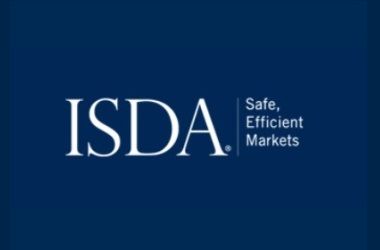A controversial derivatives market practice that detractors say is blocking the Dodd-Frank goal of creating anonymous trading in over-the-counter swaps will soon be the subject of formal judgement by the leading industry body’s board of directors.
(Updates to add quotes and reference to prior story)
The International Swaps and Derivatives Association (ISDA) has agreed to convene its Board of Directors for a vote to determine whether or not the Association should formally advocate for the abolishment of post-trade name give-up in credit default swaps markets.
The agreement is one of the stipulations of a recent settlement between ISDA and a group of buyside plaintiffs that alleged the industry body helped banks block outside participants from creating a credit derivatives exchange in 2008 and 2009.
The settlement was filed over the weekend and is now under review with US District Judge Denise Cote. A timeline for approval could not be determined.
“We are pleased the matter is close to resolution. ISDA remains committed to further developing CDS market structure to ensure the market functions safely and efficiently,” said an ISDA spokesperson.
What is name give-up?
Post-trade name give-up refers to when swaps trading platforms give up the names of both counterparties following execution of a trade.
Years ago, the practice was necessary. Banks needed to know the name of the counterparty they were facing in order to account for counterparty credit risk in the bilaterally negotiated market.
But in the post-Dodd-Frank market, the majority of swaps have to pass through a central clearing-house, meaning participants all face the same entity and do not need to know what firm they traded with at execution.
As such, regulators and buyside representatives have derided the practice as a relic of the pre-Dodd-Frank market. Some further allege that the practice continues to exist at the behest of banks.
The allegation is that banks want to maintain control of dealer-only pools of liquidity, so they have leaned on the platforms to continue giving up counterparty identifying information.
Buyside firms believe the practice allows banks to exact retribution on any fund that tries to enter the dealer-only market – by cutting of other banking services.
Chief derivatives regulator the CFTC is well-aware of the controversy and a full year ago telegraphed an intention to address the practice one way or the other. (See story “CFTC zeroes in on swaps anonymity”)
However the agency has been slowed by a variety of other regulatory issues, including questions of its legal ability to force platforms to abolish name give-up – and has yet to issue a formal opinion.
In that context the ISDA vote could prove meaningful. The Association is the standard-bearer for derivatives markets, though it cannot necessarily compel any participant or platform to change business practices.
“ISDA is not a normal trade group, they’re almost like a self-regulatory organisation for the dealer side of the derivatives market,” said one lobbyist at a swaps trading platform.
“They produce legal documents that are used across the market and conduct determinations regarding payouts when a firm defaults – that’s unique for a trade organisation. Even though they can’t force people to do anything, an ISDA stamp probably acts as a green light for trading platforms to change their policies.”
The ISDA board of directors is comprised of 23 industry heavyweights across the buy- and sell-side – four buyside and 17 bankers, with two representatives from ISDA itself.
ISDA declined to comment on the timeline or logistics of a vote based on the fact the settlement is still under review by Judge Cote.
